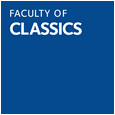The debate over the authorship of the Commentariolum Petitionis is both longstanding and unlikely to be decisively resolved in the near future. Largely as a result of this, it remains one of antiquity’s most underrated documents; frequently side-lined as a curiosity, or dismissed as a forgery. The position I take for this paper is to argue that with the debate on the text’s authenticity seemingly deadlocked on a philological level, it is necessary to advance arguments addressing the other major objection to the possibility of its author being Quintus Cicero, that is to say, the purpose of this baffling document. I propose that an approach to this text which takes its philosophical context into account both supports Quintus Cicero’s claim to authorship and provides evidence for certain aspects of his brother’s historic election to the consulship. I situate the text within the contemporary debate which attempted to categorize all activities as either a teachable technē or an innate dunamis. By showing that this election should be understood as the former, Quintus could promote the idea that his brother’s rise was to be attributed to successful electioneering, not backdoor Pompeian intrigue.
Marcus Tullius Cicero
,Commentariolum Petitionis
,Quintus Cicero
,Latin Philosophy
,Roman Politics
,Roman History
,Latin Literature
,Roman Republic



